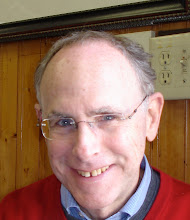
At the urging of one of my colleagues, I set up an account on LinkedIn, which if you don’t know is a social networking site for professionals. Unlike Facebook, which I’m sure you’re familiar with, it’s not about friends, but rather it’s about business relationships or friends or both, maybe. It's confusing. By the way, I don’t have a Facebook account out of respect for students. I’m old school in that I still think, despite the recent trends among older individuals establishing Facebook accounts, that Facebook is the domain of college students, and I don’t want to inhabit that world or inhibit anyone's behavior. In other words, I don’t want to be your "friend," to put it bluntly. Hey, I’m operating out of respect for our social differences. And, that’s really the point of this blog post. It seems to me that the hierarchical lines that separated us—despite my desire to hang on to them--no longer seem to exist, at least not on the Internet. You know what they say: so goes the Internet, goes the rest of the world. When a couple of students recently tried to “link” with me on LinkedIn, I didn’t quite know what to do. After all, they are neither my friends, nor are they my professional colleagues. At the same time, I didn’t want to offend them, so I simply didn’t respond the requests. To this day, their invitations sit waiting for me to respond. I feel guilty; well, a little guilty. But I’m confused. Where do we draw the lines? Who is a friend? Who is a colleague? Who is superior? Who is inferior? Who is laterally related, socially speaking? These questions are compounded by my guilty pleasure of following the bicycle racer and cancer survivor Lance Armstrong on Twitter. I can’t believe I do that, but I have to admit to having an “imaginary social relationship” with LA. So, I check out what he’s saying regularly; not everyday or every hour. Although when the Tour de France begins in a few weeks, I’ll certainly be doing just that, getting his take on the Tour. I’m not a “follower” which is a formal category on Twitter. I’m merely a lurker. What does that make me? I’m curious to learn what you think about this phenomenon. Do you follow Ashton Kutcher on Twitter? Have you attempted to “friend” a celeb on Facebook? And, what about those other hierarchical relationships between family, and teachers, among others? Are we all equal in the world of the Internet?

1 comment:
You know, I'm really glad that you have this sense of separation between you and your students. As a student user on facebook, I can't tell you how creepy it's been to see that I have friend requests from teachers I haven't had in years to the fathers & mothers of people that I'm friends with (or people I used to be friends with but am not anymore). However, I think the issue I really had with the teachers is that I hadn't been in communication with them for quite some time. I'm actually friends with several of my old mentors/professors--but facebook is a college community. I think that as long as education is the connection, it's acceptable.
Although I do think it's important that there be set boundaries for certain websites. I mean, my own mother has an account on Myspace--but that's a server I think can manage that appropriately. In fact, when my mom signed up, I thought it was cool. But Myspace is an openly public community--for practically everybody. Facebook, to me, as you mentioned as well, is much more centered around the college community.
Post a Comment